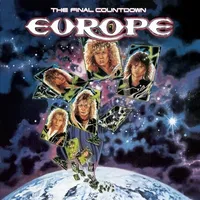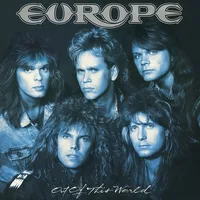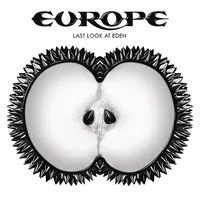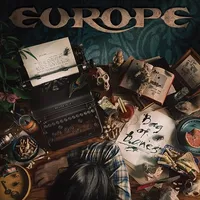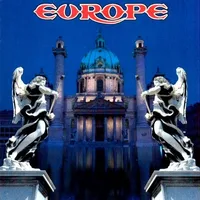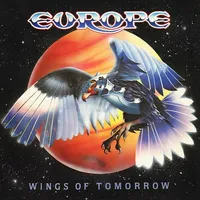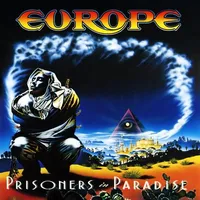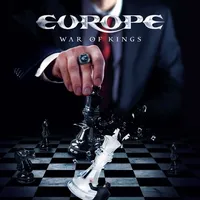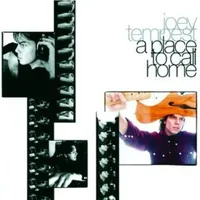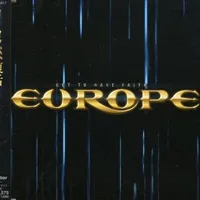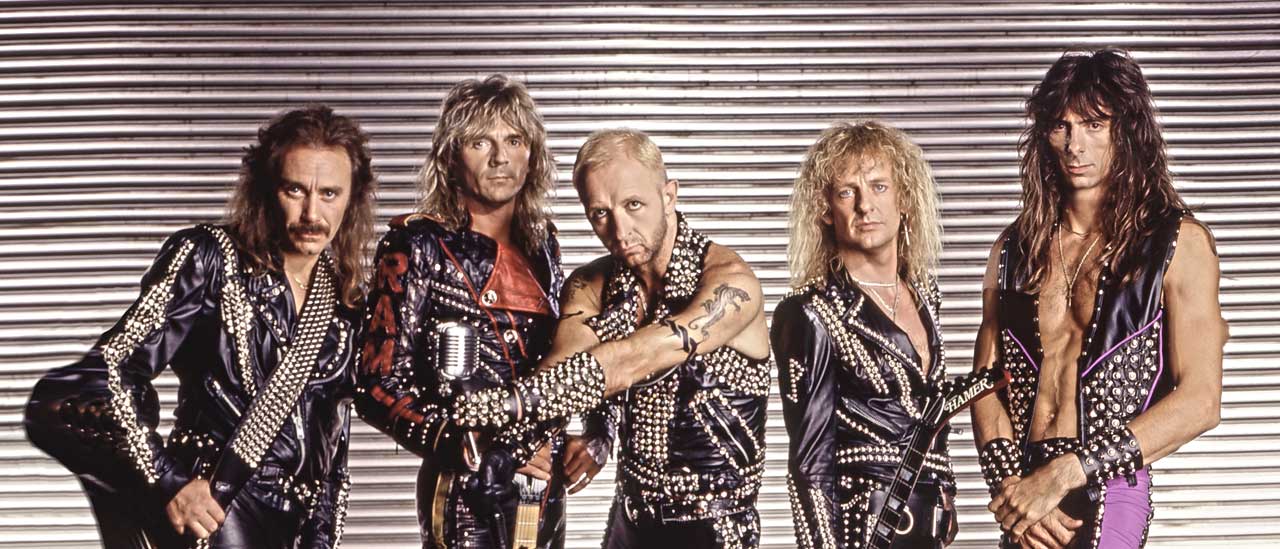The albums you should definitely listen to by Europe, the second most famous group to come out of Sweden
Europe took the classic hard rock template and made it 'continental'. Here's the countdown of the Scandi-rockers' best albums
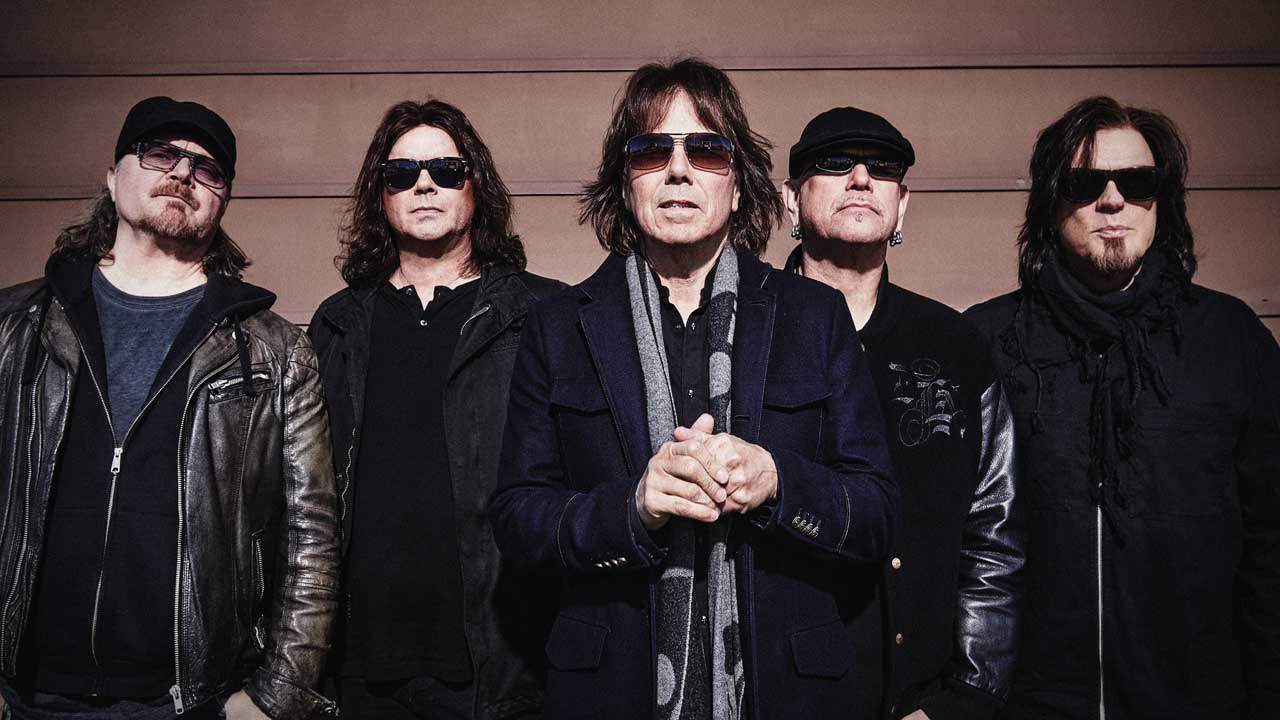
There’s an old adage in sport: that first is everything, and second is nothing. But for the members of Europe, being the second most famous group that came out of Sweden is a badge of honour; coming runner-up to ABBA is like coming second behind Usain Bolt in the 100 metres.
In a career that now spans 35 years, Europe have sold more than 20 million records. And while that’s small vodka compared to ABBA’s 380 million it’s still a phenomenal achievement for a band that was formed when singer Joey Tempest and guitarist John Norum were just 15 years old and bunking off school in their home town of Upplands Väsby to drink beer and listen to Led Zeppelin, Deep Purple, Queen and Thin Lizzy.
Originally named Force, the band was rechristened in tribute to Purple’s live album Made In Europe. Their first two albums – the self-titled debut in 1983, and Wings Of Tomorrow in 1984 – featured the quartet of Tempest, Norum, bassist John Levén and drummer Tony Reno. But in 1985 they found a new drummer, Ian Haughland, and keyboard player Mic Michaeli. The definitive line-up of Europe was established, and the first album they made together would transform them into major stars.
That album’s title track, The Final Countdown, hit number one in 25 countries in 1986. With its parping keyboard riff and fist-in-the-air chorus, it was one of the quintessential 80s rock anthems, and it remains the one song, above all others, that Europe will always be remembered for.
Success came at a price. John Norum exited in late ’86, feeling that the band had sold out. But in the end, it wasn’t fame or the rock’n’roll lifestyle that prompted Europe to split in 1992. It was the onset of grunge – the curse of so many 80s stars.
In the years that followed, Tempest made three solo albums. But in 2003, Europe reunited with Norum in their classic line-up. Since then, they have made six albums and they haven’t put a foot wrong – with 2009’s Last Look At Eden and 2012’s Bag Of Bones restoring their reputation as a classic heavy rock band. The band’s most recent album, 2017’s Walk The Earth, is rock-solid, with shades of latter-day Deep Purple in Wolves and a heavy epic in Turn To Dust.
And for Joey Tempest, the spirit of the band is still the same as it was when he was a kid. As he once said to Classic Rock: “The music we heard as teenagers is what’s coming out of us now.”

The Final Countdown (Epic, 1986)
In the year that Bon Jovi hit big with their third album, Slippery When Wet, Europe pulled off the same trick with The Final Countdown. And at the height of hair metal, Joey Tempest had the pretty-boy looks to rival even Jon Bon Jovi.
For the title track, the song that changed his life, Tempest wrote the signature keyboard riff back in 1982. The “galloping tempo”, as he called it, was inspired by Iron Maiden’s Run To The Hills, the lyrics indebted to David Bowie’s Space Oddity. On this fine album there were other hits – the joyous Rock The Night and power ballad Carrie. But really, it was that one song that made Europe’s career.
Out Of This World (Epic, 1988)
The follow-up to Countdown was a huge hit, selling a million in the US. Although John Norum had quit, protesting Europe had become “a teeny-bopper bubblegum band”, new guitarist Kee Marcello was perfect – as illustrated by a wonderfully melodic solo on single Superstitious, a majestic track with shades of Deep Purple, arguably the band’s greatest song.
They proved Norum wrong with Out Of This World’s masterful hard rock. Alongside Superstitious are brilliant songs including fast, euphoric Ready Or Not and Open Your Heart – first recorded in 1984 – which David Coverdale would have sold his mother for.
Last Look At Eden (EarMusic, 2009)
Six years after reuniting, Europe completed their best album since the 80s. Following two LPs in a modern-rock style, Last Look At Eden was, in Tempest’s words, “a real Europe album”. While the production sounded contemporary, this was classic heavy rock and their popularity rose again.
The tone was set by a title track referencing Purple and Zeppelin. The heavy 70s vibe continued with the swinging Mojito Girl, and there was subtlety in the bittersweet New Love In Town. In Sweden it was Europe’s first No.1 album for 21 years. They’d earned it.
Given second wind by Last Look At Eden, Europe took the momentum into Bag Of Bones three years later. Their credibility was enhanced by producer Kevin ‘Caveman’ Shirley, whose recent work included albums by Iron Maiden and Joe Bonamassa. Tempest hailed Bag Of Bones as “hardcore classic rock... with the blues knocking at the door”.
He wasn’t bullshitting. The band locked into a heavy groove on riff-driven Not Supposed To Sing The Blues and the AC/DC-inspired Doghouse, and on the title track had Bonamassa playing slide. Europe sounded gritty, earthy, even funky. They’d come a long way since The Final Countdown.
The band’s debut album is the heaviest they ever made. When originally released on independent Hot Records in early ’83, Tempest and Norum were still only 19, and the exuberance of youth is writ large in the music.
In the gung-ho attack of In The Future To Come there’s an echo of the NWOBHM. Paradize Bay is reminiscent of vintage Scorpions. Children Of This Time has the cut-and-thrust of Thin Lizzy. And in Seven Doors Hotel, an epic tale of ancient evil, came the first classic Europe song. Much like Def Leppard’s On Through The Night, Europe’s debut has a raw quality and naïve charm – a product of simpler times.
Wings Of Tomorrow (Columbia, 1984)
They didn’t reinvent the wheel on this second album, but as Joey Tempest said: “We became a better band.” He describes Wings Of Tomorrow as “one of our most important albums.” Although it peaked at No.20 on the Swedish chart – a disappointment after their debut went Top 10 – the quality of Tempest’s songwriting landed a major deal with Epic.
Stormwind is comparable to peak-era MSG, with Norum soloing like Schenker. Scream Of Anger is full-throttle headbanging and the anthemic Open Your Heart suggested Europe’s could be the next big thing. Two years later, they were.
Prisoners In Paradise (Epic, 1991)
Europe’s fifth album was released in the year of the grunge explosion. When Tempest dropped in to Epic’s New York HQ and saw the company gearing up to push Pearl Jam’s Ten, he knew the game was up. Prisoners In Paradise was a good record that got lost in the shuffle.
The recording was fraught – producer Bob Rock bailed to work with Metallica on the Black album, and was replaced by Beau Hill. But if Europe couldn’t buy a hit in ’91, they still had some great songs. This album’s grand title track is among their very best. And the heavy, moody Seventh Sign was a throwback to their early 80s roots.
The late, great Malcolm Dome may have been overstating the case when he claimed in a Metal Hammer review that War Of Kings “is arguably the best album the Swedes have ever made”, but it’s certainly one of their best from the last 20 years.
With a contemporary production by Dave Cobb - famed for his work with Slash, Rival Sons, Greta Van Fleet and more - War Of Kings is classic rock for modern times. Highlights include the title track, a mighty anthem, and Light It Up, a blues-rock stomper reminiscent of Black Country Communion and even - whisper it - Led Zeppelin.
Joey Tempest - A Place To Call Home (Polydor, 1995)
During Europe’s lengthy hiatus, Tempest cut three solo records. All are very different to his work with the band – especially 1997’s Azalea Place, which has a strong country influence. But the best of them is A Place To Call Home, pop-rock in the style of Tom Petty and late-period Bon Jovi. “I wanted to prove myself as a singer-songwriter,” Tempest said.
He did so brilliantly on the title track, its twang reminiscent of Petty’s Full Moon Fever. And on another standout song, Right To Respect, his old friend John Norum played killer lead guitar. Tempest did OK as a solo artist. But in the end, the lure of the mothership proved irresistible.
...and one to avoid
You can trust Louder
Start From The Dark (Sanctuary, 2004)
Their first new album in 13 years, featuring the classic line-up that made The Final Countdown and even the same producer, Kevin Elson. And yet Europe’s big comeback fell flat.
Start From The Dark was a bold statement. “We wanted to do something that was relevant,” Tempest said. They went for a modern, heavy sound, with Norum’s guitar detuned. But if the energy level was high, the songs were mostly weak. The ballad Hero, dedicated to Phil Lynott, is classy. But the title track, while powerful, has a riff Zakk Wylde would have had rejected by Ozzy. For Europe, there was much better to come than this.
Sign up below to get the latest from Classic Rock, plus exclusive special offers, direct to your inbox!
Freelance writer for Classic Rock since 2005, Paul Elliott has worked for leading music titles since 1985, including Sounds, Kerrang!, MOJO and Q. He is the author of several books including the first biography of Guns N’ Roses and the autobiography of bodyguard-to-the-stars Danny Francis. He has written liner notes for classic album reissues by artists such as Def Leppard, Thin Lizzy and Kiss, and currently works as content editor for Total Guitar. He lives in Bath - of which David Coverdale recently said: “How very Roman of you!”
